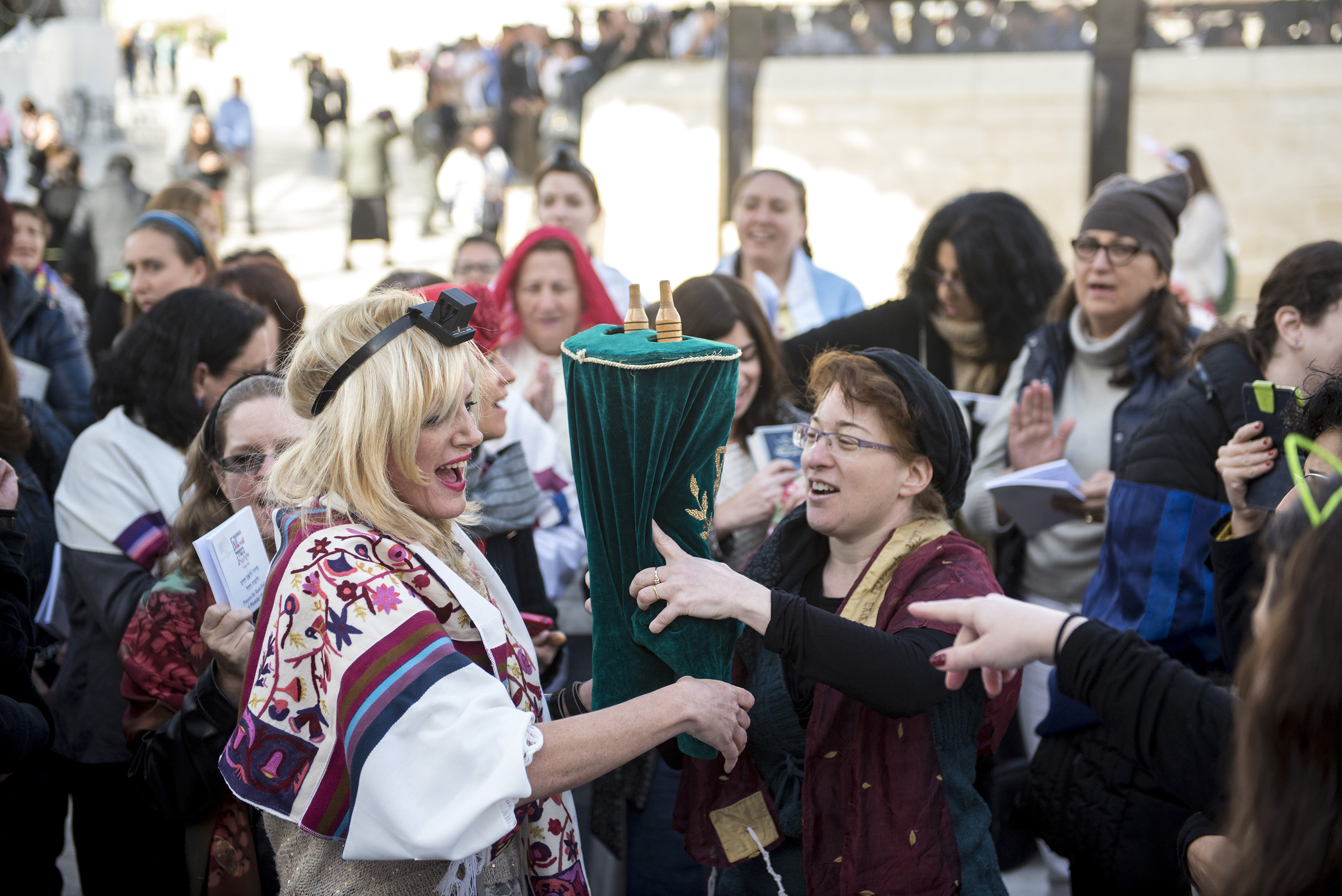March 11, 2016 / 1 Adar II, 5776
Parashat P’kudei is at the end of the book of Exodus (Sh’mot) and deals with the completion and dedication of the Mishkan, the portable Tabernacle or sanctuary, in which G-d’s Presence dwelled during the Hebrews’ journeys through the desert. At this point, they are no longer slaves; they are free people building a “home” for God, the Divine Presence, to dwell with them. The parashah delineates an inventory of all the collections and a description of the fashioning of the vestments to be worn by the priests when they conduct rituals in the Tabernacle.
Earlier in parashat Ki-Tissa we learned that the women of Israel refused to donate their precious metals to the creation of the golden calf because they would not contribute to something they did not believe in. In contrast, here they freely shared their gold, silver, and copper mirrors to build the mishkan. In p’kudei we see they were committed donors to God’s dwelling place. The women displayed faith; they had hope and a sense of purpose. The women saw redemption and renewal in the creation of the Tabernacle. They had a tangible sense of God’s presence among them and thus, God rewarded the women with the holiday of Rosh Chodesh, the celebration of the new moon. Because of their righteousness, the women were exempt from working on Rosh Chodesh.
While this does not mean that Rosh Chodesh is a “women’s holiday,” any more than our other festivals are “men’s holidays,” Rosh Chodesh has taken on a special resonance with Jewish women. Many Jewish women have revived the ancient tradition, to interpret and to observe Rosh Chodesh as a day that holds special meaning for them. For decades Jewish women and congregations have been designating the beginning of the new month as a time for special prayers, song, study and discussion. Likewise, Women of the Wall has been meeting at the Kotel to ensure a safe and inclusive space for women’s prayer at this holy site every Rosh Chodesh for 27 years. Therefore, we are dedicating this erev kabbalat Shabbat Rosh Chodesh service to Women of the Wall in solidarity with its ongoing struggle.
Another interesting point is that women had a key role at the beginning of Exodus and at the closing of Exodus. Moses is saved by the ingenuity and bravery of women (midwives, his mother, his sister, and Pharaoh’s daughter) and the Tabernacle was built by the wisdom that Miriam bequeathed to Bezalal. Bezalal, a designer, carver, builder, and one of the main craftsmen of G-d’s new dwelling, is the great grandson of Miriam.
Reflecting on P’kudei and relating the parasha to us and our contemporary world, the importance women played at that time is clear just as women are important and relevant now in our beit knesset, the Reform Movement and other important causes. Then as now, women are able to discern when a cause is worthy of their support and generosity. This parashah embodies many of the qualities of women in our congregation and Women of the Wall, such as having a clear sense of purpose and determination to achieve common goals. For example, many of our women concentrate their time, effort, commitment, and dedication to serving Emet VeShalom from our president Beth and onward. They work hard towards preserving Jewish traditions, egalitarianism, pluralism and equality in our synagogue and in the Reform Movement, and regularly do tikkun olam – good deeds to improve our world.
The nature of our entire Congregation – both men and women – will lead us to continue making conscientious, thoughtful decisions about where we donate our talents and contributions while nourishing the hope that our efforts will make a difference now and in the future. As Moses said in parashat Vayekhel, last week’s Torah portion 35:5, “Everyone whose heart is moved shall bring gifts to G-d.” These gifts for G-d help all of us.
Just as the contributions from everyone in our Kehilla enabled us to support Women of the Wall, together or on our own, we can embrace other worthy causes in a variety of ways such as signing a petition, spreading an important notion in social media or by email, giving money, or simply by identifying with it in a prayer.
In all these ways we become patrons to issues that “speak” to us as Jewish women and men. By doing these things together we know that our legacy will be meaningful, precious, and worthy gifts which we bring to God and to our community. In this manner we present to our community the two tallitot that we purchased together from Women in the Wall to use in our services.
May the women in our congregation, and our congregation as a whole, continue to go from strength to strength.
Shabbat Shalom.
Sharon Mann
*My inspiration for this drasha came from drashot by Ellen Wagner and Sandi Firsel in “Voices of Women in Reform Judaism.”

